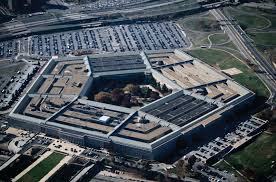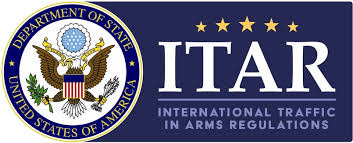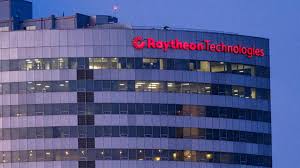Raytheon Reaches Comprehensive Settlement with Justice Department and Pays $950 Million to Resolve False Claims Act, FCPA and ITAR Violations (Part I of IV)

Raytheon Company (Raytheon) — a subsidiary of defense contractor, RTX (formerly known as Raytheon Technologies Corporation) — agreed to pay over $950 million to resolve the Justice Department’s investigations into: (i) a major government fraud scheme involving defective pricing on certain government contracts; (ii) violations of the Foreign Corrupt Practices Act (FCPA); and (iii) the Arms Export Control Act (AECA) and its implementing regulations, the International Traffic in Arms Regulations (ITAR).
As part of the settlement, Raytheon entered into a three-year deferred prosecution agreement (DPA) and agreed to the filing of criminal information in the District of Massachusetts charging Raytheon with two counts of major fraud against the United States.
Raytheon admitted to engaging in two separate schemes to defraud the Department of Defense (DOD) relating to the provision of defense articles and services, including PATRIOT missile systems and a radar system.
Separately, Raytheon entered into a three-year DPA in connection with a criminal information in the Eastern District of New York charging Raytheon with two counts: conspiracy to violate the anti-bribery provision of the FCPA for a scheme to bribe a government official in Qatar and conspiracy to violate the AECA for willfully failing to disclose the bribes in export licensing applications with the Department of State as required by part 130 of ITAR. The Justice Department’s FCPA and ITAR resolution is coordinated with the Securities and Exchange Commission (SEC).

Both DPAs require that Raytheon retain an independent compliance monitor for three years, enhance its internal compliance program, report evidence of additional misconduct to the Justice Department, and cooperate in any ongoing or future criminal investigations.
Raytheon also reached a separate False Claims Act settlement with the Justice Department relating to the defective pricing schemes.
Criminal Fraud Resolution
Applying the Corporate Enforcement Program factors, the Justice Department resolved the criminal fraud case against Raytheon based on: (i) the nature and seriousness of the offense conduct, which involved two separate schemes to defraud the U.S. government; (ii) Raytheon received credit for its affirmative acceptance of responsibility and cooperation with DOJ’s investigation, which included (a) facilitating interviews with current and formeremployees; (b) providing information obtained through its internal investigation, which allowed DOJ to preserve and obtain evidence as part of its own independent investigation; (c) making detailed presentations to DOJ; (d) proactively identifying key documents in the voluminous materials collected and produced; (e) engaging experts to conduct financial analyses; and (f) demonstrating its willingness to disclose all relevant facts by analyzing whether the crime-fraud exception applied to certain potentially privileged documents and releasing the documents that it deemed fell within the exception. However, in the initial phases of the investigation prior to March 2022, DOJ noted that Raytheon’s cooperation was limited by unreasonably slow document productions.
Raytheon also engaged in timely remedial measures, including (i) terminating certain employees who were responsible for the misconduct; (ii) establishing a broad defective pricing awareness campaign; (iii) developing and implementing policies, procedures, and controls relating to defective pricing compliance; and (iv) engaging additional resources with appropriate expertise to evaluate and test the new policies, procedures, and controls relating to defective pricing compliance.

In light of these considerations, as well as Raytheon’s prior history, the criminal penalty calculated under the U.S. Sentencing Guidelines reflects a 25% reduction off the 10th percentile above the low end of the otherwise applicable guidelines fine range.
FCPA Resolution
The Justice Department cited the same factors under the Corporate Enforcement Policy as the Criminal Fraud resolution, and cited the following remedial measures, including: (i) recalibrating third party review and approval processes to lower company risk tolerance; (ii) implementing enhanced controls over sales intermediary payments; (iii) hiring empowered subject matter experts to oversee its anti-corruption compliance program and third party management; (iv) implementing data analytics to improve third party monitoring; and (v) developing a multipronged communications strategy to enhance ethics and compliance training and communications. In light of these considerations, as well as Raytheon’s prior history, the criminal penalty calculated under the U.S. Sentencing Guidelines reflects a 20% reduction off the 20th percentile above the low end of the otherwise applicable guidelines fine range.
ITAR Resolution
The Justice Department cited the same factors under the Corporate Enforcement Policy as the Criminal Fraud resolution, and cited the following remedial measures, in addition to the remediation described above in connection with the FCPA case: (i) hiring additional empowered subject matter experts in legal and compliance; (ii) developing a multipronged communications strategy to enhance ethics and compliance training and communications; and (iii) making enhancements to its ITAR-related compliance program. In light of these considerations, the ITAR-related financial penalty of $21,904,850 includes a cooperation and remediation credit of 20% off the otherwise applicable penalty.
The False Claims Act Settlement

Under the False Claims Act settlement, which is the second largest government procurement fraud recovery under the Act, Raytheon will pay $428 million for knowingly failing to provide truthful certified cost and pricing data during negotiations on numerous government contracts between 2009 and 2020, in violation of the Truth in Negotiations Act (TINA). Congress enacted TINA in 1962 to help level the playing field in sole source contracts — where there is no price competition — by making sure that government negotiators have access to the cost or pricing data that the offeror used when developing its proposal. As part of the settlement, Raytheon admitted that it failed to disclose cost or pricing data, as required by TINA, regarding its labor and material costs to supply weapon systems to DOD.
Raytheon also admitted that by misrepresenting its costs during contract negotiations it overcharged the United States on these contracts and received profits in excess of the negotiated profit rates. Further, Raytheon admitted that it failed to disclose truthful cost or pricing data on a contract to staff a radar station. Raytheon also admitted that it billed the same costs twice on a DOD contract. As part of the civil resolution, Raytheon received credit under the Justice Department’s guidelines for taking disclosure, cooperation, and remediation into account in False Claims Act cases. That cooperation included conducting and disclosing the results of an internal investigation, disclosing relevant facts and material not known to the government but relevant to its investigation, providing DOJ with inculpatory evidence, conducting a damages analysis, identifying and separating individuals responsible for or involved in the misconduct, admitting liability and accepting responsibility for the misconduct, and improving its compliance programs.















